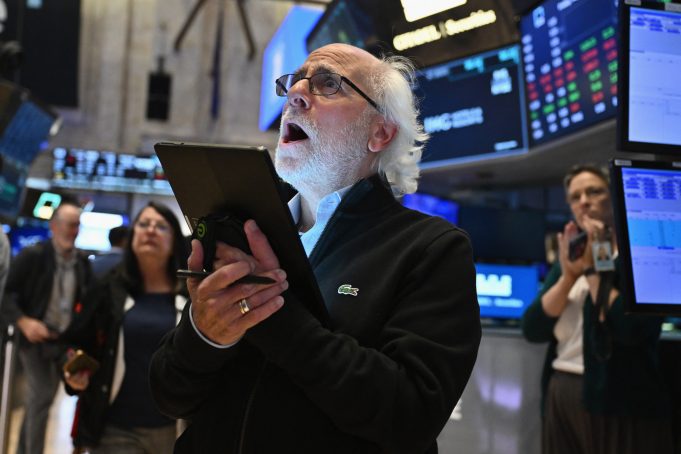NEW YORK – Oil prices jumped Monday over escalating Middle East tensions while stock markets wavered after getting a boost last week from talk of a US interest rate cut.
In a further sign of the Fed’s thinking, another policymaker came out in support of a rate cut on Monday.
San Francisco Fed President Mary Daly said in an interview that it was “hard to imagine” not cutting interest rates in September, adding: “The direction of change is down, and the time to adjust is now.”
Tensions were still running high in the Middle East following Sunday’s exchange of fire between Lebanon’s Hezbollah and Israel.
Hezbollah said it had launched a large-scale drone and rocket attack on Israel. Israel said it conducted air strikes into Lebanon that destroyed “thousands” of rocket launchers and thwarted a major attack.
The oil market was also reacting to Libya’s eastern-based administration declaring that it was shutting down oil fields under its control and “suspending all production and exports until further notice.”
The move by the Benghazi-based administration, which controls most of the country’s oil fields, comes amid rising tensions after the UN-recognised government based in Tripoli replaced the central bank governor on Monday morning.
In equities, the Dow rose but the S&P 500 and the tech-heavy Nasdaq fell amid a tech slump ahead of Nvidia’s earnings later this week.
The Paris CAC 40 closed in the green while Frankfurt fell.
In Asia, Tokyo and Seoul finished in negative territory but Hong Kong and other exchanges in the region rose.
Equities surged on Friday after Powell declared at a summit of central bankers in Wyoming that “the time has come” for the Fed to reduce rates that were raised to a 23-year high to tame inflation.
The Fed is now expected to cut its key rate at the next policy meeting on September 17-18, and the only doubts are how big the cut will be and how many more would follow.
“I think people used today as an opportunity to take some near-term profits,” Sam Stovall, from CFRA, told AFP.
New US second-quarter economic growth figures will be published Thursday, followed by the Fed’s preferred gauge of inflation — the personal consumption expenditures (PCE) price index — on Friday and jobs data next week.
Weak jobs data rocked the markets in early August, as analysts worried that the Fed had waited too long to cut rates and avoid a recession.
Deutsche Bank analysts said they expect the Fed to cut rates by 0.25 percentage points next month but that “weak labor-market data could shift the focus” to a half-point reduction. – AFP

















